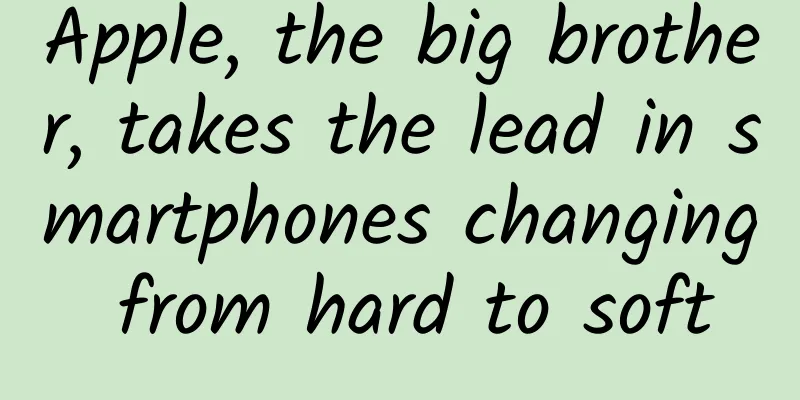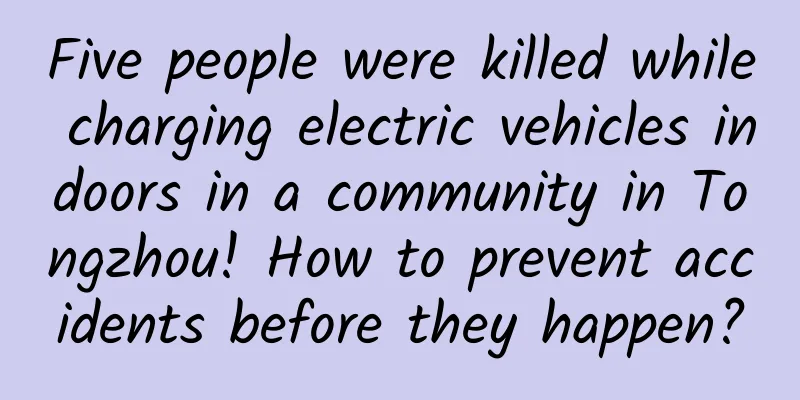Foxconn is no longer so obedient: Is it becoming a hidden danger for Apple?

|
Japanese media reported a few days ago that Sharp President and CEO Tai Junwu told students at Taiwan's Tatung University that Apple is switching from LCD to OLED displays. Sharp said it is building a new OLED facility in Japan to manufacture displays for "key customers." The so-called key customer is actually self-explanatory. Sharp is the supplier of Apple iPhone displays, and Sharp's parent company is Foxconn. Tai Junwu did not specify when the new iPhone will switch to OLED displays, but the outside world generally believes that next year's iPhone 8 will use OLED displays. Even though Samsung and LG and other manufacturers may still compete for OLED display orders, from the information disclosed by Sharp, we know that Foxconn's Sharp is very likely to win Apple's OLED display order. Foxconn cannot live without Apple Apple currently contributes roughly half of Hon Hai's revenue. If Apple sneezes, Foxconn will catch a cold. If Apple's orders decrease or prices are lowered, Foxconn will be hit the hardest, because Foxconn accounts for 7 of the 18 contract manufacturers that have established supply partnerships with Apple. Foxconn accounts for more than 70% of iPhone production. But from the current situation, Foxconn is not only responsible for the assembly of most of Apple's iPhone products, but also supplies OLED displays and glass bodies for future Apple products. It can be seen that in addition to Foxconn's extreme reliance on Apple for profits, Apple's reliance on Foxconn is also increasing. This has put Apple under increasing pressure. In fact, Apple has been working to weaken Foxconn's influence and power for many years. For example, according to supply chain news, Apple will reallocate the proportion of iPhone orders next year and has handed over some of the manufacturing tasks to Pegatron. Foxconn, which currently still accounts for more than 70% of the market share, may be further weakened. But it is very helpless that even if Apple pursues a dual supplier strategy for a single component in the supply chain, it cannot stop Foxconn from becoming a giant in the foundry industry. Even if Apple really wants to find a foundry to counterbalance it, it finds that Foxconn is already an irreplaceable supplier. So we see that in addition to OLED, Foxconn is also manufacturing wireless charging modules for the new iPhone, and this function has been included in the upgrade plan for the new iPhone. Not long ago, there was also news that Foxconn is discussing a cooperation plan with British semiconductor chip design company ARM, and will officially enter the field of semiconductor development and design in the future. Although Apple chips are currently exclusively manufactured by TSMC, if Foxconn wants to make chips in the future, Apple may also hand over chip production and foundry work to Foxconn in the future. The more industrial chain business areas Foxconn is involved in, the more work Apple needs to hand over to Foxconn. In this way, Apple's dependence on Foxconn is increasing. Foxconn has become a foundry that Apple cannot underestimate and use at will. Over the past many years, Terry Gou agreed to every request from Apple and accepted Apple's requirements and orders on cost, quality and delivery deadlines. In order to keep up with Apple's production orders, Foxconn recruited thousands of new employees, introduced a large number of robots, invested in many foundries, and even began to invest in factories in India to meet Apple's needs to expand into the Indian market. Even though Apple's operating profit margin exceeded 35% at its peak in 2012, Foxconn was willing to accept a meager profit of 1.5%, because Foxconn was very aware of the importance of Apple, which was booming, to the company's performance. But now Foxconn is starting to become less obedient In fiscal 2016, Apple's operating margin fell to 27.8%, the lowest level in nearly seven years. Not long ago, Apple began to ask suppliers to reduce their quotations by 20%, which was opposed by a number of suppliers such as Foxconn and ASE Semiconductor. Foxconn Group's companies believed that such a price was unacceptable and stated that they would not accept Apple orders without reasonable profits. Foxconn is well aware that it is at a crossroads of transformation and urgently needs to reduce its dependence on Apple, especially as Apple is in a downward trend. High dependence on Apple will bring huge risks. Therefore, Foxconn has been actively assisting non-Apple smartphone customers to increase their product sales, including increasing orders for notebooks and smartphones from Huawei and Asus. Data shows that currently about two-fifths of Foxconn's revenue comes from manufacturing servers and network equipment for a few companies, including Cisco, Juniper, HP, Huawei and Dell, and it plans to use electronic whiteboards as another business pillar to increase more non-Apple revenue; at the same time, Foxconn's previous acquisition of Sharp and taking over the Nokia brand, entering the server and storage market, independently developing robots, and deploying online financial business in mainland China are all related to its own transformation anxiety. Cook once said that when dealing with global suppliers, we must be aggressive and unreasonable. Behind Apple's supply chain, many suppliers have prospered because of Apple, but also fell because of Apple's supply chain strategy. For example, a long time ago, Taiwan's touch screen manufacturer TPK produced screens for iPhones and iPads for a long time, and its performance and stock price soared to become the leader in touch screens. But when Apple later developed a sense of insecurity and implemented a multi-supplier strategy, distributing orders to suppliers such as Sharp, Toshiba, LG, and Samsung, TPK's stock price plummeted. Another example is that the Japanese company Shicoh once produced small focus motors for Apple, but later because the company's financial report did not meet Apple's standards, Apple terminated the relationship and gave the order to its competitor Alpine, which led to the company's bankruptcy. There are many such cases in Apple's supply chain. It can be said that Apple's strategy for suppliers follows Cook's style: it must be aggressive. But this has a strong negative effect, that is, suppliers will also realize that doing business with Apple is very risky, and Apple can decide which suppliers live and which suppliers die. So they are all trying to diversify their own profits. For example, Taiwan MediaTek, Largan, Innolux, and Honghui are also Huawei's suppliers. TSMC and Sunny Optical have also begun to manufacture for Huawei. As Apple's sales decline, suppliers have also begun to change their minds and think about how to avoid the risks brought by Apple, which has weakened Apple's control over the supply chain. Foxconn's aggressiveness and strategy are no less than Apple's. It can be said that Foxconn has been quietly and low-key for so many years, and unknowingly, Apple's supply chain is no longer completely under Apple's control.
Foxconn is no longer as willing to accept Apple's conditions as it was before. If Apple loses Foxconn, it will greatly affect the production progress, quality control, orders, and sales stability of the future iPhone, and even disrupt the innovation, technology updates, and product manufacturing rhythm of the iPhone. To some extent, Foxconn is making itself more and more indispensable. Foxconn currently has a scale, quality, and speed that its competitors can hardly achieve, and has the ability to mass-produce Apple-related products, which has become its bargaining chip with Apple. But Foxconn's hidden dangers still exist After all, if Foxconn loses Apple's orders, its crises and shortcomings will be magnified in all aspects. In addition, Pegatron is gradually growing stronger, and Wistron has officially become the third foundry for the iPhone. As Foxconn has more and more alternatives, Foxconn's anxiety will grow. After all, this means that Apple is cutting its power. As iPhone sales decline, iPhone 7 is not as popular as before, and user loyalty continues to decline. What Foxconn obviously needs to think about is how to avoid the negative effects of Apple. Otherwise, once iPhone assembly lines and factories in various places are idle, it will bring a heavy cost crisis to Foxconn. Apple is currently using Foxconn to manufacture more components such as OLED, and is increasingly relying on Foxconn to bring higher efficiency and speed, which may lead to an imbalance in the balance of power, and Foxconn will push back to Apple to seek more bargaining space. For Foxconn, whether Foxconn is able to create new products, develop new core partners, and seek new business models and growth space in addition to manufacturing will determine whether Foxconn can get rid of its excessive dependence on Apple. On the other hand, Apple is currently in a downward trend. During the period of declining sales and influence, conflicts in various supply chain links will arise due to conflicts of interest, and the direction of the supply chain will change. Apple's usual aggressive management of suppliers may no longer be applicable. Therefore, Apple's increasing reliance on Foxconn may further weaken Apple's bargaining power and control over suppliers, which may become a major hidden danger for Apple in the future. Author: Wang Xinxi, senior TMT commentator. Reprinting is prohibited without permission. Author’s WeChat public account: Redianweiping As a winner of Toutiao's Qingyun Plan and Baijiahao's Bai+ Plan, the 2019 Baidu Digital Author of the Year, the Baijiahao's Most Popular Author in the Technology Field, the 2019 Sogou Technology and Culture Author, and the 2021 Baijiahao Quarterly Influential Creator, he has won many awards, including the 2013 Sohu Best Industry Media Person, the 2015 China New Media Entrepreneurship Competition Beijing Third Place, the 2015 Guangmang Experience Award, the 2015 China New Media Entrepreneurship Competition Finals Third Place, and the 2018 Baidu Dynamic Annual Powerful Celebrity. |
<<: Audi is not the only "light factory". These lights are more dazzling.
>>: A deep dive into the technical details of Tesla Model 3's super glass
Recommend
Global mobile phone and home appliance supply chain suddenly "hijacked" by India
[[319920]] On March 22, local time, the Indian ce...
Xiaomi Air Purifier 2 unboxing photos: 699 yuan, smaller in size
When you are all paying attention to the Redmi No...
How much does it cost to make a sand painting video?
With the arrival of Valentine's Day, many boy...
iPhone 6 teardown analysis shows minimum production cost is $200
According to a disassembly analysis by market res...
Query the price of joining the Shuozhou Men's Clothing Mini Program. How much is the price of joining the Shuozhou Men's Clothing Mini Program?
How much does it cost to join the Shuozhou Men’s ...
If you haven’t seen this picture, you can’t say you understand data analysis?
When it comes to charts that are often used in da...
A brief analysis of the three principles and four strategies for community content operations
A good community will inevitably form a stable cl...
Cases + Data | Is the effect of investment in the education industry poor? That’s because you didn’t choose the right channel!
Every year from July to September, when summer va...
Can you avoid gaining weight without dieting? Peking Union Medical College doctors teach you the secrets of diet
Author: Zheng Xixi, Internal Medicine Doctor at P...
Changan Automobile Technology Ecosystem Conference User Forum was held, with four major measures to ensure the construction of a new service platform
On August 24, the 2021 Changan Automobile Technol...
I have compiled 20 types of advertising formats for media apps
Advertising is the main source of commercial reve...
Marine Life Illustrations | We also have real "mermaid" fish
(Source: Zhejiang Ocean University)...
VisionMobile: IoT Developer Program Best Practices Survey (Infographic)
199IT original compilation Developers value the c...
WeChat secretly accesses photo albums. Are these apps really that rebellious?
[[428187]] I don’t know if you guys still remembe...









